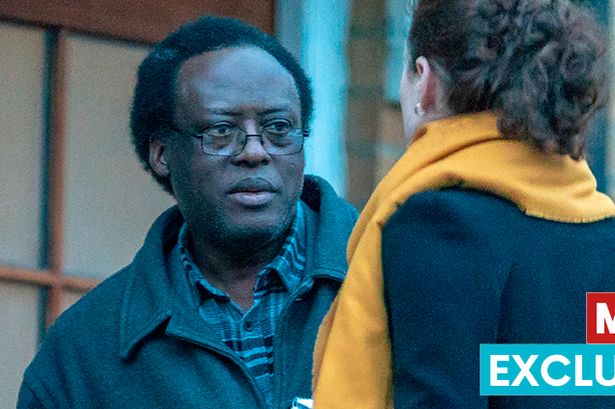The specter of the Rwandan genocide, a horrific 100-day period in 1994 that saw the systematic slaughter of an estimated 800,000 Tutsi people and moderate Hutus, continues to cast a long shadow, particularly for those who fled the carnage and sought refuge in other countries. Thirty years later, the pursuit of justice remains a paramount concern, with investigations across the globe striving to hold perpetrators accountable for their roles in the orchestrated violence. In the United Kingdom, this pursuit has taken the form of ongoing investigations by specialized police units, exploring the possibility of charging Rwandan individuals residing within the UK with historic offenses related to the genocide. This complex and sensitive endeavor involves meticulous examination of evidence, often gathered over decades, and navigating intricate legal landscapes, both domestic and international, in the quest to bring those responsible to justice.
The UK’s involvement in pursuing justice for the Rwandan genocide stems from its commitment to international law and the principle of universal jurisdiction, which allows states to prosecute individuals for certain grave crimes, even if those crimes were committed outside their territory. In the case of the Rwandan genocide, the sheer scale and brutality of the atrocities, coupled with the international community’s determination to prevent impunity, have driven efforts to identify and prosecute perpetrators wherever they may reside. The Metropolitan Police’s War Crimes Unit, a specialized team dedicated to investigating such offenses, has played a key role in collecting evidence, tracking down suspects, and building cases that meet the rigorous standards required for prosecution. This involves painstakingly piecing together events that occurred decades ago, often relying on eyewitness testimony, documentary evidence, and forensic analysis.
Investigating historical atrocities presents unique challenges. The passage of time can lead to the degradation of evidence, the fading of memories, and the death of key witnesses. Moreover, gathering evidence in a foreign country, particularly one with a complex and potentially unstable political landscape, can be fraught with difficulties. Investigators must navigate these challenges with sensitivity and respect for the victims and survivors, while ensuring the integrity and admissibility of the evidence collected. The UK authorities often collaborate with international organizations, such as the International Criminal Tribunal for Rwanda (ICTR) and its successor mechanism, the International Residual Mechanism for Criminal Tribunals (IRMCT), to access evidence and expertise.
Beyond the logistical and evidential hurdles, legal complexities pose significant challenges in prosecuting historical offenses related to the Rwandan genocide. The UK’s legal framework must be carefully considered to determine the appropriate charges and ensure a fair trial. Furthermore, navigating international legal principles, including issues of extradition and mutual legal assistance, is crucial for successful prosecutions. The UK’s commitment to adhering to international human rights standards throughout the investigative and prosecutorial processes is paramount, ensuring that any individual charged receives a fair trial while upholding the principles of due process.
The decision to pursue charges against individuals residing in the UK for their alleged involvement in the Rwandan genocide is not taken lightly. It requires careful consideration of the available evidence, the likelihood of a successful prosecution, and the potential impact on the UK’s relations with Rwanda. The UK government must balance its commitment to justice with the need to maintain diplomatic relations and ensure regional stability. Moreover, prosecutions of this nature can have significant implications for the Rwandan diaspora community in the UK, potentially reopening old wounds and creating divisions. Therefore, engaging with and providing support to affected communities is a crucial aspect of these investigations.
Ultimately, the pursuit of justice for the victims of the Rwandan genocide is a long and arduous process, requiring international cooperation, meticulous investigation, and unwavering commitment. The investigations being carried out by UK authorities represent a crucial component of this global effort, demonstrating that the passage of time does not diminish the international community’s resolve to hold perpetrators accountable for their crimes. While the challenges are significant, the pursuit of justice remains essential, not only for the victims and survivors of the genocide but also for the prevention of future atrocities. These efforts underscore the importance of accountability and the enduring principle that those who commit such heinous crimes will ultimately be brought to justice, no matter where they seek refuge.














